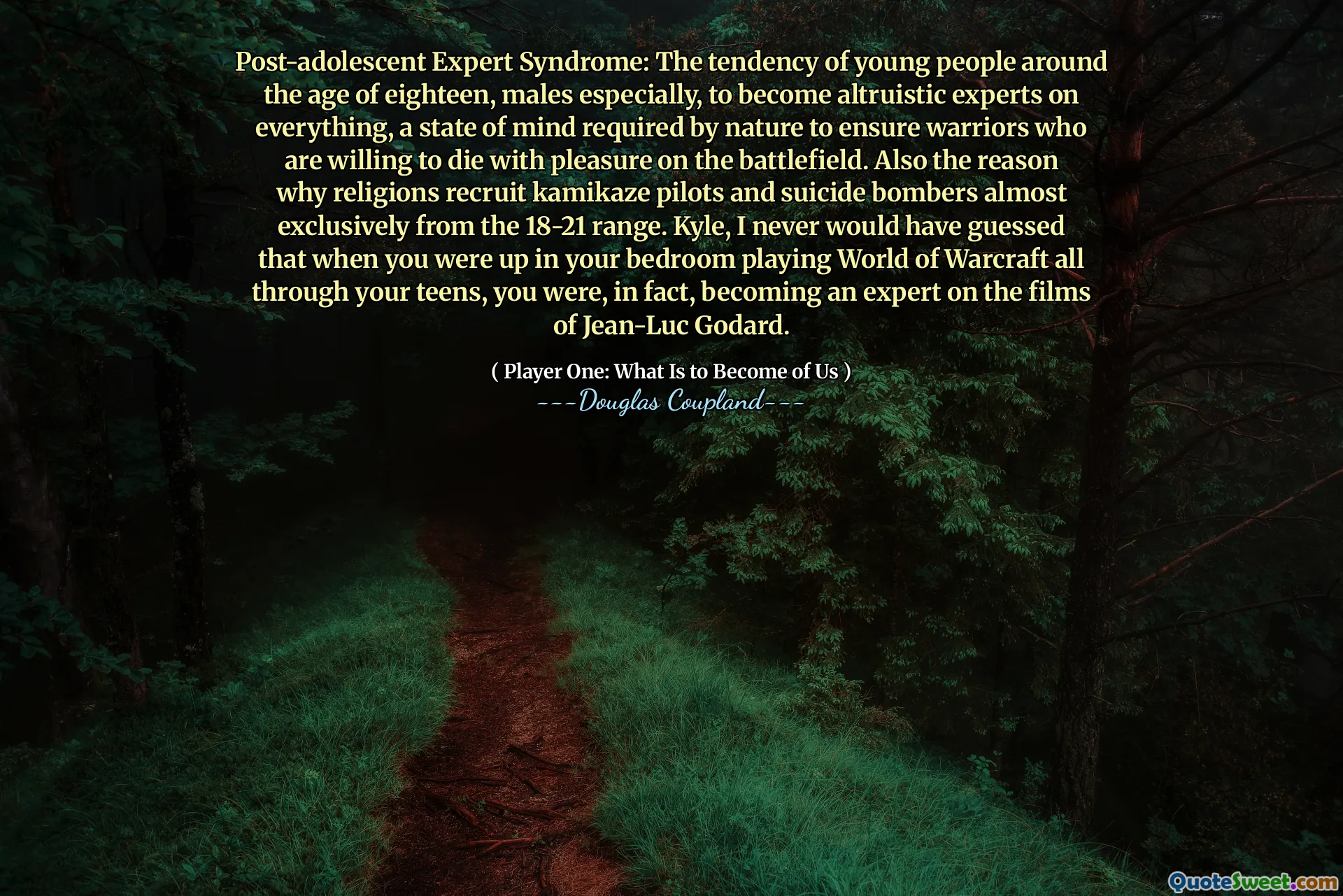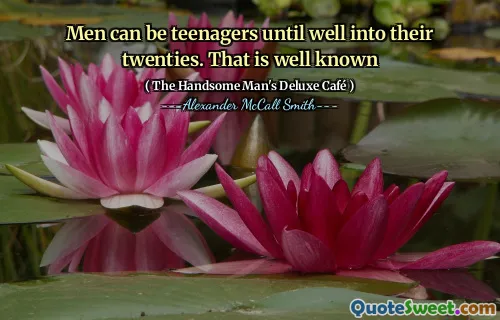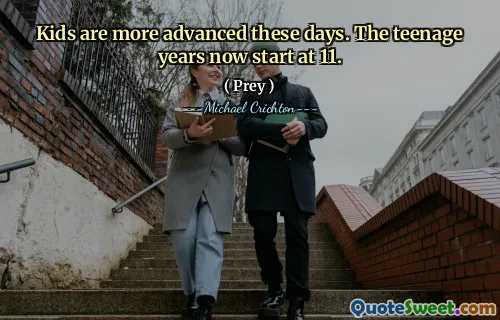
Post-adolescent Expert Syndrome: The tendency of young people around the age of eighteen, males especially, to become altruistic experts on everything, a state of mind required by nature to ensure warriors who are willing to die with pleasure on the battlefield. Also the reason why religions recruit kamikaze pilots and suicide bombers almost exclusively from the 18-21 range. Kyle, I never would have guessed that when you were up in your bedroom playing World of Warcraft all through your teens, you were, in fact, becoming an expert on the films of Jean-Luc Godard.
This quote offers a compelling insight into the transitional phase of late adolescence, a period often characterized by the quest for identity and mastery. The term "Post-adolescent Expert Syndrome" humorously encapsulates how young individuals, especially males, often believe they possess profound knowledge and expertise in everything during their late teens. This phenomenon can be seen as an evolutionary attempt to foster confidence and establish a sense of importance, which might be vital for social and survival purposes, such as defending one’s community or forging a clear identity. Interestingly, the quote draws a provocative parallel between this youthful delusion and extreme acts of devotion, such as martyrdom, which tend to manifest within the same age range. It suggests that this heightened sense of conviction and conviction-driven expertise may be a natural, if exaggerated, adaptation shaped by evolutionary pressures, perhaps to prepare young warriors willing to die for their cause. Moreover, it underscores the idea that passions and pursuits in teens—whether obsessive gaming or intense cultural study—are part of a broader developmental process, often mistaken for superficial or superficial interests, but perhaps serving a deeper psychological or social function. Reflecting on Kyle's transformation from a teenage gamer obsessively exploring films by Jean-Luc Godard to an individual embodying this 'syndrome' reminds us that under the surface of seemingly trivial obsessions, young people are engaging in critical processes of self-discovery and cultural integration. This quote invites us to reconsider how society perceives adolescent intensity, ideology, and the importance of seemingly minor pursuits in shaping identity and worldview.

